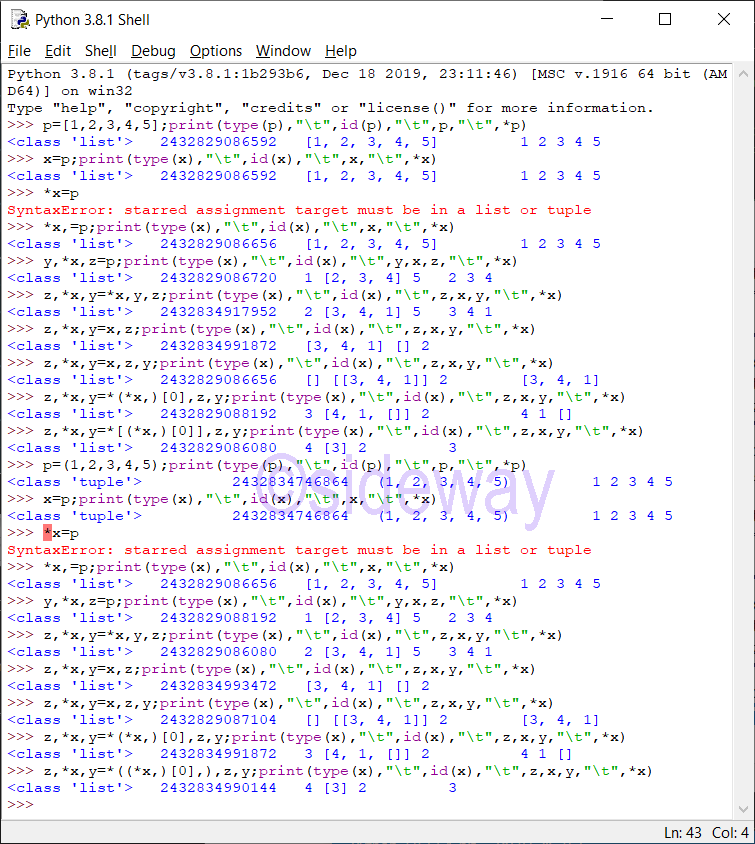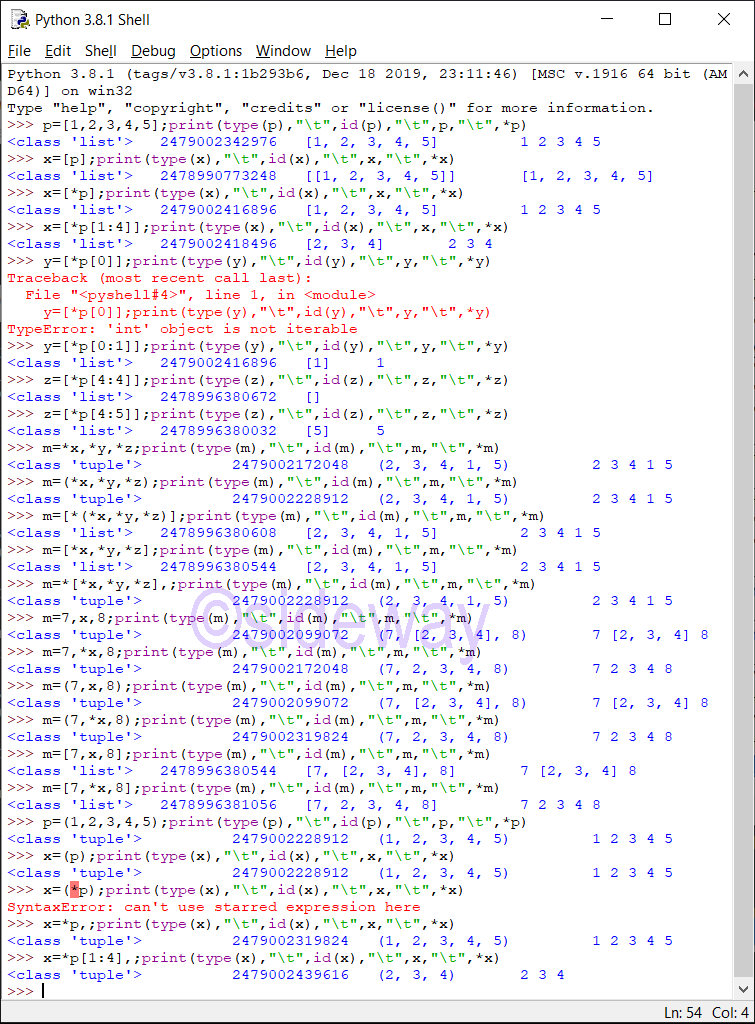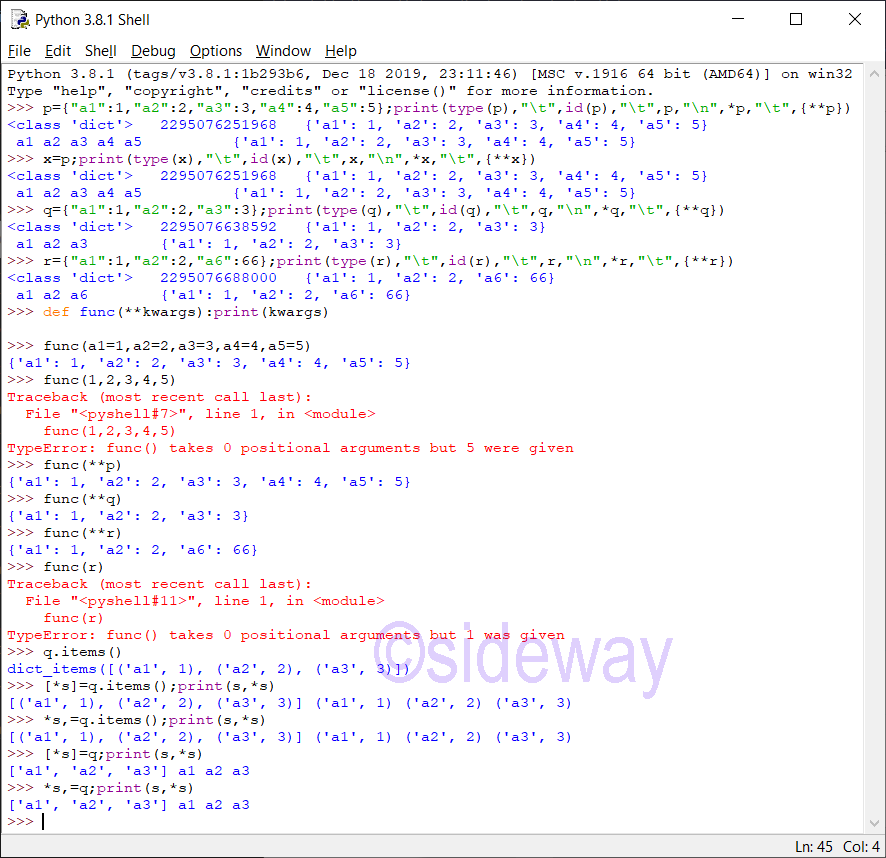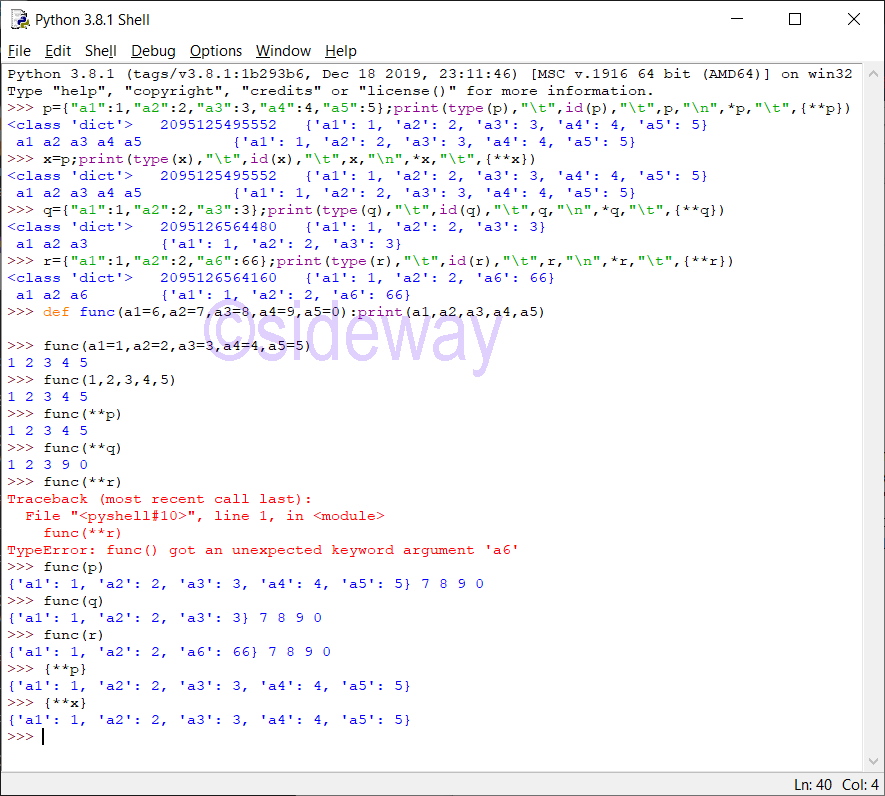TOCPythonLanguageCode LineCode BlockFunctionsCommon PackagesResource and LinkKnowledge BaseHow ToFAQ
Draft for Information Only
Content
Python Variable-length Variable List
Python *arg and **kwarg
*args
**kwargs
Python Packing and Unpacking
Python Argument Packing and Unpacking
*args Packing
*args Unpacking
Python Keyword Argument Packing and Unpacking
**kwargs Packing
**kwargs Unpacking
Source and Reference
Python Variable-length Variable List
A Python variable is created by assigning a value to a variable name. Besides standard python variable, there are two special variable syntaxes used in python to assign a variable-length variable list to a variable name. They arePython *arg and **kwarg
Python *args
For **kwargs
For Python Packing and Unpacking
The interpretation mechanism of PythonPython Argument Packing and Unpacking
Python*args Packing
Python 
*args Unpacking
Python 
Python Keyword Argument Packing and Unpacking
Python**kwargs Packing
Python 
**kwargs Unpacking
Python 
Source and Reference
©sideway
ID: 200502202 Last Updated: 5/22/2020 Revision: 0
Latest Updated Links
- Travel Singapore Sight Space(last updated On 12/30/2025)
- Travel Singapore Sight Curiosity Cove(last updated On 12/30/2025)
- Travel Singapore Sight Night Safari(last updated On 12/30/2025)
- Travel Singapore Sight River Wonders(last updated On 12/30/2025)
- Travel Singapore Sight Rainforest Wild ASIA(last updated On 12/30/2025)
- Travel Singapore Sight Singapore Zoo(last updated On 12/30/2025)
- Travel Singapore Sight Mandai(last updated On 12/30/2025)
- Travel Singapore Sight Bird Paradise(last updated On 12/30/2025)
- Travel Singapore Sight AltitudeX(last updated On 12/30/2025)
- Travel Singapore Sight(last updated On 12/6/2025)
- Travel Singapore Rail Network(last updated On 12/5/2025)

 Nu Html Checker
Nu Html Checker  53
53  na
na  na
na
Home 5
Business
Management
HBR 3
Information
Recreation
Hobbies 9
Culture
Chinese 1097
English 339
Travel 31
Reference 79
Hardware 54
Computer
Hardware 259
Software
Application 213
Digitization 37
Latex 52
Manim 205
KB 1
Numeric 19
Programming
Web 289
Unicode 504
HTML 66
CSS 65
SVG 46
ASP.NET 270
OS 431
DeskTop 7
Python 72
Knowledge
Mathematics
Formulas 8
Set 1
Logic 1
Algebra 84
Number Theory 206
Trigonometry 31
Geometry 34
Calculus 67
Engineering
Tables 8
Mechanical
Rigid Bodies
Statics 92
Dynamics 37
Fluid 5
Control
Acoustics 19
Natural Sciences
Matter 1
Electric 27
Biology 1
